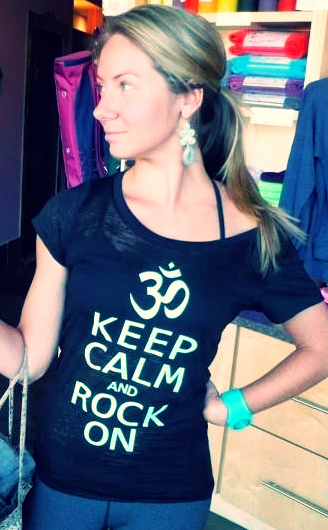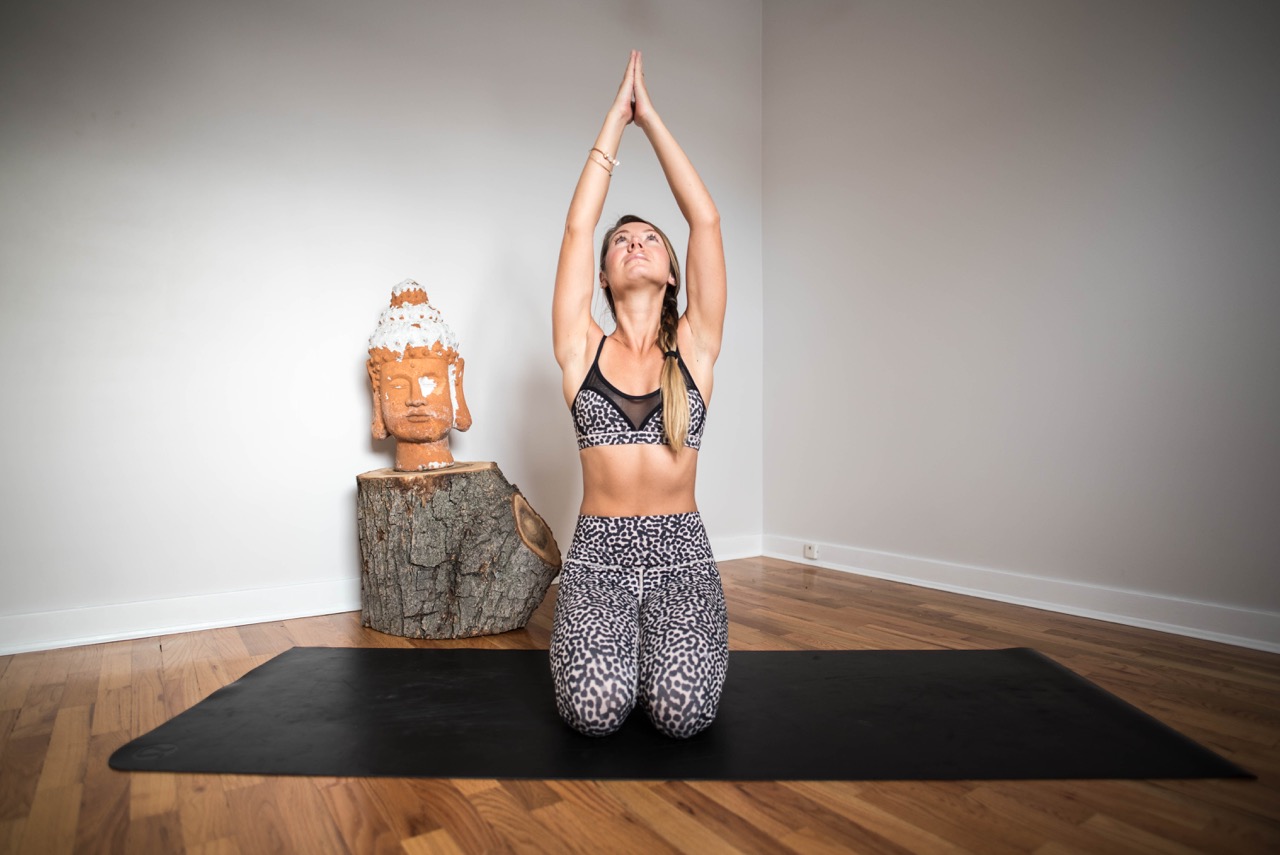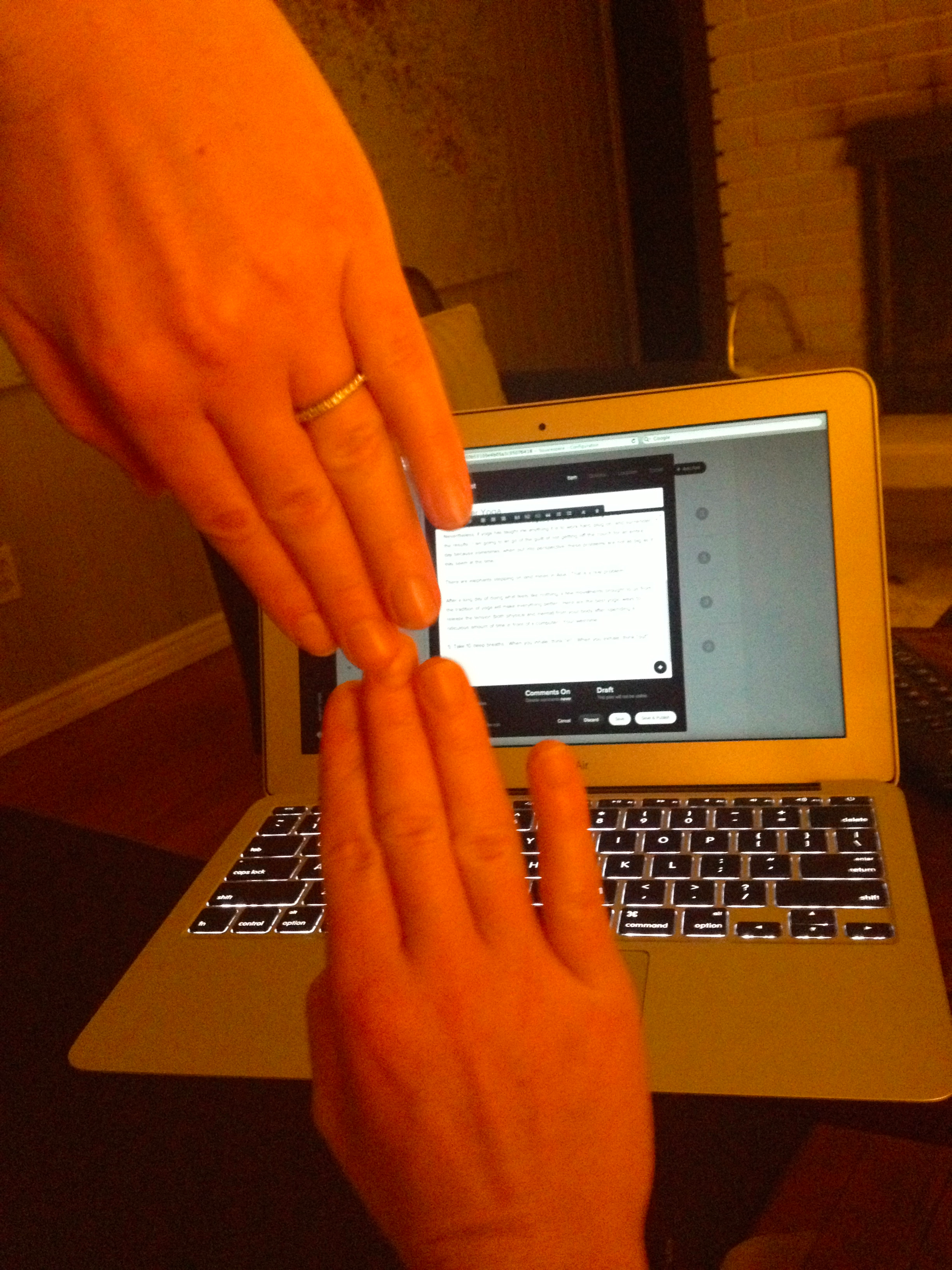I have been exploring the world of meditation now for ten years but only just recently did a dear friend of mine send me this explanation of why it is so essential. It actually gave me goosebumps- never has something resonated so deeply with me! After reading this, my meditation practice has taken on an entirely new vigilance. I genuinely hope that it does for you what it did for me <3
~Meditation, Why Bother?~
"Meditation is not easy. It takes time and it takes energy. It also takes grit, determination and discipline. It requires a host of personal qualities which we normally regard as unpleasant and which we like to avoid whenever possible.
It is certainly a great deal easier just to kick back and watch television. So why bother? Why waste all that time and energy when you could be out enjoying yourself?
Why bother? Simple. Because you are human. And just because of the simple fact that you are human, you find yourself heir to an inherent unsatisfactoriness in life which simply will not go away.
You can suppress it from your awareness for a time. You can distract yourself for hours on end, but it always comes back--usually when you least expect it.
All of a sudden, seemingly out of the blue, you sit up, take stock, and realize your actual situation in life. There you are, and you suddenly realize that you are spending your whole life just barely getting by.
You keep up a good front. You manage to make ends meed somehow and look OK from the outside. But those periods of desperation, those times when you feel everything caving in on you, you keep those to yourself. You are a mess. And you know it. But you hide it beautifully.
Meanwhile, way down under all that you just know there has got be some other way to live, some better way to look at the world, some way to touch life more fully. You click into it by chance now and then.
You get a good job. You fall in love. You win the game. and for a while, things are different. Life takes on a richness and clarity that makes all the bad times and humdrum fade away.
The whole texture of your experience changes and you say to yourself, "OK, now I've made it; now I will be happy". But then that fades, too, like smoke in the wind. You are left with just a memory. That and a vague awareness that something is wrong.
So what is wrong with you? Are you a freak? No. You are just human. And you suffer from the same malady that infects every human being. It is a monster inside all of us, and it has many arms: Chronic tension, lack of genuine compassion for others, including the people closest to you, feelings being blocked up, and emotional deadness. Many, many arms.
None of us is entirely free from it. We may deny it. We try to suppress it. We build a whole culture around hiding from it, pretending it is not there, and distracting ourselves from it with goals and projects and status.
But it never goes away. It is a constant undercurrent in every thought and every perception; a little wordless voice at the back of the head saying, "Not good enough yet. Got to have more. Got to make it better. Got to be better." It is a monster, a monster that manifests everywhere in subtle forms.
Life seems to be a perpetual struggle, some enormous effort against staggering odds. And what is our solution to all this dissatisfaction? We get stuck in the ' If only' syndrome. If only I had more money, then I would be happy.
If only I can find somebody who really loves me, if only I can lose 20 pounds, if only I had a color TV, Jacuzzi, and curly hair, and on and on forever.
So where does all this junk come from and more important, what can we do about it? It comes from the conditions of our own minds. It is deep, subtle and pervasive set of mental habits, a Gordian knot which we have built up bit by bit and we can unravel just the same way, one piece at a time.
The essence of our experience is change. Change is incessant. Moment by moment life flows by and it is never the same. A thought springs up in you head and half a second later, it is gone. In comes another one, and that is gone too.
People come into your life and they leave again. Friends go, relatives die. Your fortunes go up and they go down. Sometimes you win and just as often you lose. It is incessant: change, change, change. No two moments ever the same.
There is not a thing wrong with this. It is the nature of the universe. But human culture has taught you some odd responses to this endless flowing. We categorize experiences. We try to stick each perception, every mental change in this endless flow into one of three mental pigeon holes.
It is good, or it is bad, or it is neutral. Then, according to which box we stick it in, we perceive with a set of fixed habitual mental responses. If a particular perception has been labeled 'good', then we try to freeze time right there.
We grab onto that particular thought, we fondle it, we hold it, we try to keep it from escaping. When that does not work, we go all out in an effort to repeat the experience which caused that thought. Let us call this mental habit 'grasping'.
Over on the other side of the mind lies the box labeled 'bad'. When we perceive something 'bad', we try to push it away. We try to deny it, reject it, get rid of it any way we can. We fight against our own experience. We run from pieces of ourselves. Let us call this mental habit 'rejecting'.
Between these two reactions lies the neutral box. Here we place the experiences which are neither good nor bad. They are tepid, neutral, uninteresting and boring. We pack experience away in the neutral box so that we can ignore it and thus return your attention to where the action is, namely our endless round of desire and aversion.
This category of experience gets robbed of its fair share of our attention. Let us call this mental habit 'ignoring'. The direct result of all this lunacy is a perpetual treadmill race to nowhere, endlessly pounding after pleasure, endlessly fleeing from pain, endlessly ignoring 90 percent of our experience. Than wondering why life tastes so flat. In the final analysis, it's a system that does not work.
Sounds pretty bleak, doesn't it? Luckily it's not; not at all. It only sounds bleak when you view it from the level of ordinary mental perspective, the very level at which the treadmill mechanism operates.
Down under that level lies another whole perspective, a completely different way to look at the universe. It is a level of functioning where the mind does not try to freeze time, where we do not grasp onto our experience as it flows by, where we do not try to block things out and ignore them.
It is a level of experience beyond good and bad, beyond pleasure and pain. It is a lovely way to perceive the world, and it is a learnable skill. It is not easy, but is learnable.
You can't ever get everything you want. It is impossible. Luckily, there is another option. You can learn to control your mind, to step outside of this endless cycle of desire and aversion. You can learn to not want what you want, to recognize desires but not be controlled by them.
This does not mean that you lie down on the road and invite everybody to walk all over you. It means that you continue to live a very normal-looking life, but live from a whole new viewpoint. You do the things that a person must do, but you are free from that obsessive, compulsive drivenness of your own desires.
You want something, but you don't need to chase after it. You fear something, but you don't need to stand there quaking in your boots. This sort of mental culture is very difficult. It takes years. But trying to control everything is impossible, and the difficult is preferable to the impossible.
You can't make radical changes in the pattern of your life until you begin to see yourself exactly as you are now. As soon as you do that, changes flow naturally. You don't have to force or struggle or obey rules dictated to you by some authority. You just change. It is automatic.
But arriving at the initial insight is quite a task. You've got to see who you are and how you are, without illusion, judgement or resistance of any kind. You've got to see your own place in society and your function as a social being.
You've got to see your duties and obligations to your fellow human beings, and above all, your responsibility to yourself as an individual living with other individuals. And you've got to see all of that clearly and as a unit, a single gestalt of interrelationship.
It sounds complex, but it often occurs in a single instant. Mental culture through meditation is without rival in helping you achieve this sort of understanding and serene happiness...
Meditation is intended to purify the mind. It cleanses the thought process of what can be called psychic irritants, things like greed, hatred and jealousy, things that keep you snarled up in emotional bondage. It brings the mind to a state of tranquility and awareness, a state of concentration and insight.
Meditation is called the Great Teacher. It is the cleansing crucible fire that works slowly through understanding. The greater your understanding, the more flexible and tolerant you can be. The greater your understanding, the more compassionate you can be.
You become like a perfect parent or an ideal teacher. You are ready to forgive and forget. You feel love towards others because you understand them. And you understand others because you have understood yourself.
You have looked deeply inside and seen self illusion and your own human failings. You have seen your own humanity and learned to forgive and to love. When you have learned compassion for yourself, compassion for others is automatic.
An accomplished meditator has achieved a profound understanding of life, and he inevitably relates to the world with a deep and uncritical love…"
~Henepola Gunaratana Mahathera
Mindfulness in Plain English








